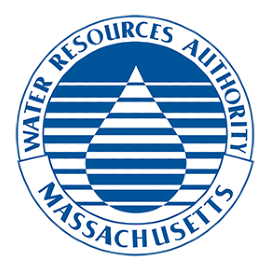
In celebration of Drinking Water Week taking place from May 4-10, 2025, MWRA joins the American Water Works Association and water professionals across North America to highlight the importance of healthy drinking water and recognize the tireless efforts of water professionals who keep it flowing around the clock in our communities.
To commemorate the week, water utilities, water organizations, government entities, environmental advocates, schools, and others throughout North America will help children and consumers of all ages understand how water is protected, cleaned, and delivered throughout their communities. MWRA recognizes that high-quality drinking water is not only essential for public health but also for overall community well-being and economic growth. Safe water supports businesses and institutions, strengthens schools and healthcare systems, and enhances quality of life.
At MWRA, we recognize all that has gone into creating this magnificent resource and understand the value and importance of protecting it. That is why MWRA and its partner agencies have worked hard to protect hundreds of thousands of acres in watersheds, providing excellent resource protection and creating an accidental wilderness that yields tourism and recreational opportunities across the region. These preservation efforts are the reason our water meets the current state and federal standards for PFAS with levels so low they cannot be quantified.
Throughout the year MWRA employs a multi-faceted approach to ensuring water quality, including:
- Source water protection: MWRA's protected water comes from the Quabbin Reservoir, about 65 miles west of Boston, and the Wachusett Reservoir, about 35 miles west of Boston. Both are filled naturally through year-round precipitation onto the watersheds where the water comes into contact with soil, rock, plants and other material as it follows its path, cleaning it and also carrying very small amounts of material into the reservoir. Over 85% of the watershed lands that surround the reservoirs are covered in forest and wetlands and about 75% of the total watershed land cannot be built on. The natural undeveloped watersheds help to keep MWRA water clean and clear. Also, to ensure safety, the streams and the reservoirs are tested often and patrolled daily by the Massachusetts Department of Conservation and Recreation (DCR). Because they are well-protected, the water in the Quabbin and Wachusett Reservoirs is considered to be of very high quality.
- Advanced treatment processes: MWRA's licensed treatment operators treat drinking water according to strict state and federal regulations. Water for most MWRA communities is treated at the John J. Carroll Water Treatment Plant in Marlborough. Water for Chicopee, South Hadley Fire District #1 and Wilbraham is treated at the William A Brutsch Water Treatment Facility in Ware, Massachusetts. Each community further treats the water to reduce the chances that lead and copper from home plumbing could dissolve into tap water.
- Rigorous water quality monitoring: MWRA tests drinking its water in accordance with state and federal standards to make sure that the water is safe to drink. A detailed overview of tests conducted on water sampled at MWRA's source reservoirs (source water), on water after treatment, and on on treated water sampled from MWRA or community lines can be found on MWRA.com under Drinking Water Quality.
- Transparency and public communication: MWRA communities are fortunate to have access to safe, reliable water and finding information about local water is simple. As required by the Safe Drinking Water Act, water utilities must provide customers with an annual water quality report, also called a Consumer Confidence Report. A CCR identifies the quality of local drinking water and if any contaminants are detected and if so, which ones. Also available in the report is information on each community’s local source for drinking water.
- MWRA sends CCRs to all households and businesses in its service area every year. Look for the latest report, with 2024 data coming this June. MWRA tests drinking water every step of the way and the results are posted online.

“Protecting public health is at the heart of everything we do in the water profession,” said David LaFrance, CEO of the American Water Works Association (AWWA). “Highly skilled, dedicated water professionals are committed to ensuring communities have the high-quality water they need for a healthy, thriving future.”
Our water professionals work around the clock all year to ensure that we stay true to our mission statement and maintain the infrastructure to deliver "fresh at the source" water from the Quabbin. Staff conduct hundreds of thousands of tests each year to ensure that your water is safe after it has been monitored by a state-of-the-art surveillance system. MWRA continues to meet every federal and state standard and the quality of our drinking water is excellent.
AWWA has put together a resource page with free downloadable materials (available in both English and Spanish) such as children's activity sheets, an artwork contest, radio PSA's and more, that can be found here.


More information about local water sources is available on DrinkTap.org.
About Drinking Water Week
For several decades, AWWA and its members have celebrated Drinking Water Week, a unique opportunity for both water professionals and the communities they serve to join together in recognizing the vital role water plays in daily lives. Free materials for download and additional information about Drinking Water Week are available on the Drinking Water Week webpage.
About AWWA
Established in 1881, the American Water Works Association is the largest nonprofit, scientific and educational association dedicated to managing and treating water, the world’s most important resource. With approximately 50,000 members, AWWA provides solutions to improve public health, protect the environment, strengthen the economy and enhance our quality of life.
